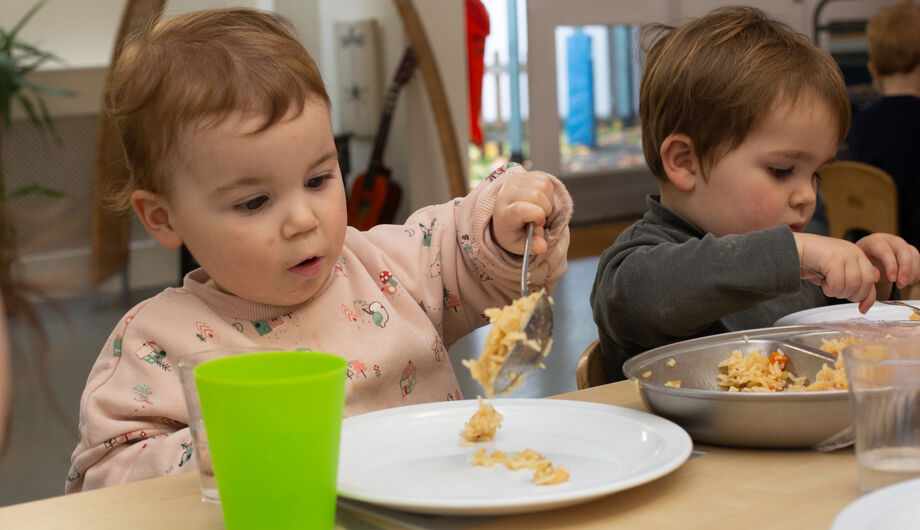
Fighting education inequality in the Early Years through food waste
An innovative partnership with City Harvest is helping us to plug a gap in Government funding and provide extra hours in nursery for children in need who are excluded…
October 16th 2025
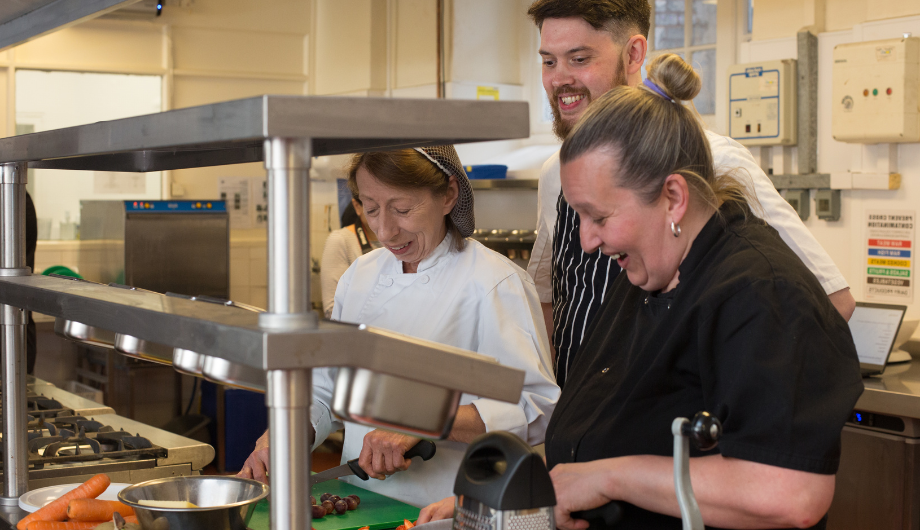
We talk endlessly about phonics, play, and pedagogy in Early Years — but how often do we talk about peas, pulses, and portion sizes? The truth is that food is as central to a child’s development as any curriculum plan. What happens at the nursery table has a lifelong impact, and the chefs behind the scenes are often the unsung heroes shaping children’s health, habits, and even their sense of belonging.
I recently spoke with Catherine Lippe, a registered nutritionist with more than 18 years’ experience in Early Years nutrition. She reminded me that nursery chefs are far more than cooks; they are “food champions” whose work directly supports children’s development and helps address wider issues of health inequality.
Catherine began her career in the NHS before moving to Public Health England and then into supporting nurseries with menu planning and training. She now leads nutrition and food policy at Nursery Kitchen and sits on the board of the Caroline Walker Trust. Her passion is clear: the earlier we nurture healthy eating habits, the bigger the long-term impact.
So, what makes a nursery chef’s role so special? Unlike restaurants or catering, cooking for children is not about presentation or sophistication — it’s about balance, consistency, and understanding what little bodies and brains need to grow. Portion sizes, allergens, cautious eaters, and cultural variety all come into play. It’s a professional craft in its own right, and Catherine is adamant that chefs need specialist training to do the best possible job. Without that, they risk feeling underprepared or undervalued. With it, they gain confidence, pride, and a voice in shaping a setting’s food culture.
Parents often worry about “fussy eaters,” but Catherine reframes this beautifully. Eating, she explains, is one of the most complex sensory skills a child will ever learn. Around 18 months, many children develop food neophobia — a natural reluctance to try new foods, rooted in evolutionary survival. The key is not pressure but patience: calm mealtimes, repeated exposure, and positive language (“You’re still learning about broccoli”) make all the difference.
Budget pressures are real for nurseries, and Catherine had some practical tips:
Perhaps the most important takeaway was this – mealtimes are not just functional breaks in the day, but powerful moments for connection, conversation, and social learning. When chefs step out of the kitchen to join children at the table, it reinforces the idea that food is about more than fuelling up — it’s about joy, community, and belonging.
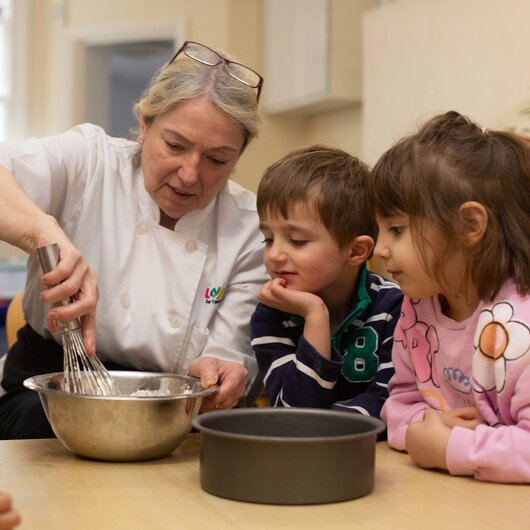
With the new EYFS nutrition guidance offering clearer direction, there’s a real opportunity to place food firmly at the heart of nursery life. But guidance alone won’t cut it; we need training, funding, and recognition for the people who make it happen.
As Catherine put it, “Every Early Years chef should see themselves as a food champion.” And I couldn’t agree more. At LEYF, we’ve long recognised this truth, which is why our specialist Chef Academy continues to train and celebrate the chefs who bring food, learning, and love to the nursery table every day.

An innovative partnership with City Harvest is helping us to plug a gap in Government funding and provide extra hours in nursery for children in need who are excluded…
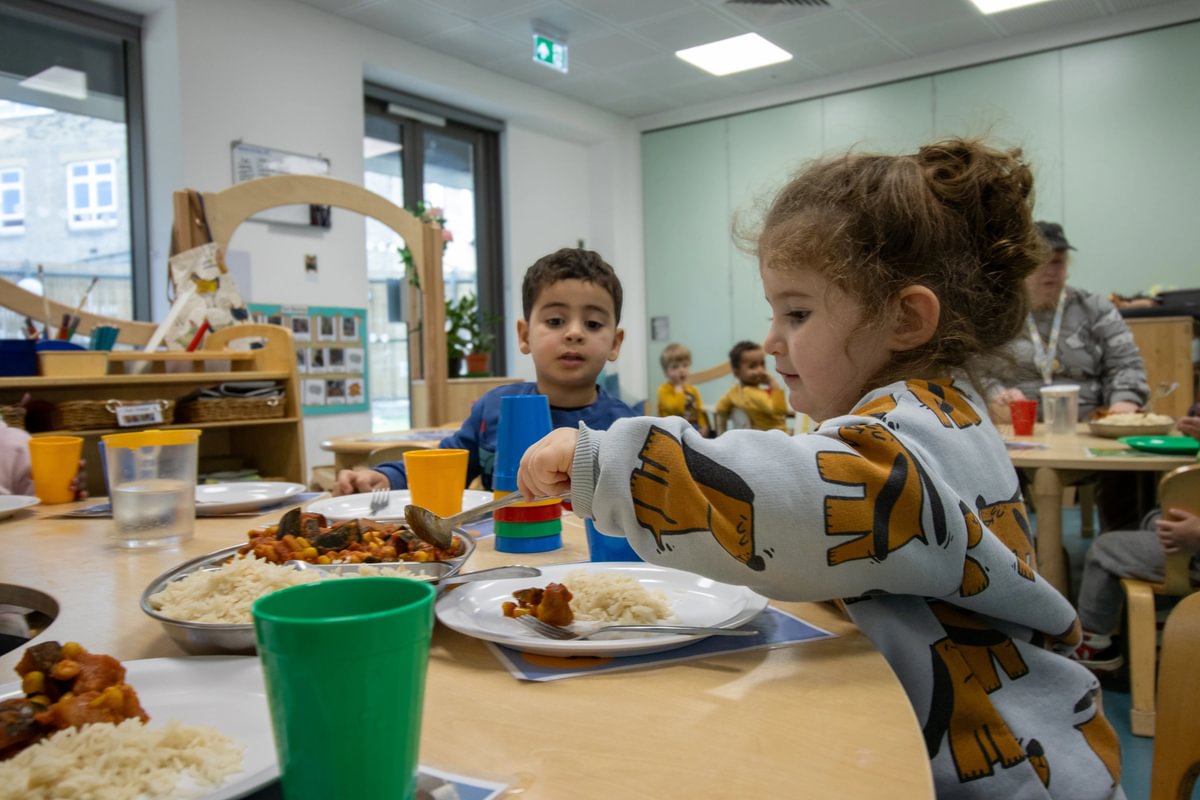
Do you want the right to ban packed lunches from your setting because of Health & Safety concerns? The recent legal challenge to the Early Years in February, was…
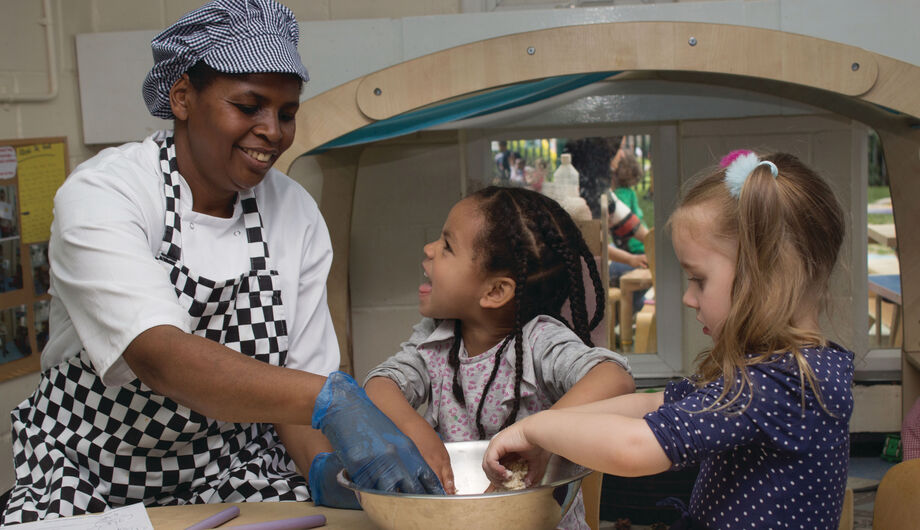
A healthy population is the foundation of a strong and thriving economy, and that begins with our children. Poor diet is a leading cause of long-term illness and…